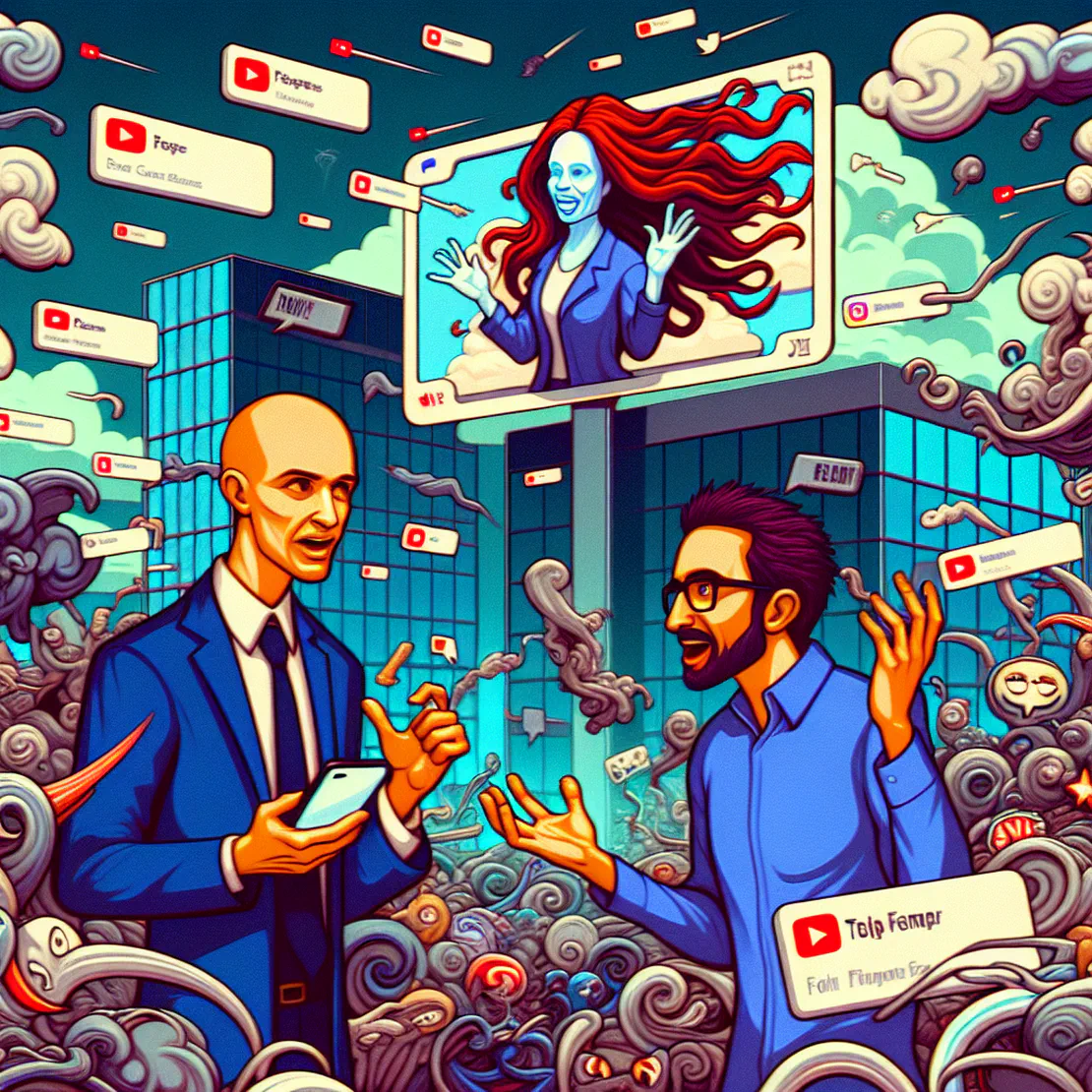
#849 - Calley Means - Is Our Food Supply Making Us Sick?
- Modern Wisdom
- Food , Health , Life
- October 10, 2024
Table of Contents
At a Glance
-
Deep Conversation on Agricultural Incentives - “be a deepimportant conversation with the agricultural community about how we unwind these brokenincentives that are leading to ultra processed food and get to a more regenerative future.” This point highlights the critical discussion about the negative impact of current agricultural incentives on food quality and the environment, underscoring the need for systemic change.
-
Skepticism Toward Health Information Sources - “You haven’t given exactly a glowing reportof what most health information iswhen it comes to accuracy.” This emphasizes the guest’s distrust in the accuracy of mainstream health information, reflecting a broader skepticism that could resonate with listeners wary of conventional health advice.
-
Personal Anecdote of Transformation - “So as she left the system in 2017, I called her an idiot. I said, ‘you’re ruining your future. What are you doing?’ So she started giving me some of those books.” This quote is significant as it illustrates a personal and transformative journey influenced by new insights into health, which led to a change in perspective.
-
Impact of Independent Media - “when you look at history, it’s often how we’re getting information. The Time Magazine said the printing press was the most important historical moment in history.” This point stresses the importance of independent media in shaping public discourse, likened to the historical impact of the printing press, highlighting its role in societal change.
-
Discussion on Metabolic Health in Mainstream vs. Independent Media - “But to me, when I think it’s such an interesting example of the free market, because you have no curiosity about childhood diabetes, obesity, pharmaceutical corruption on the mainstream media, but it’s kind of all people are talking about on independent.” This highlights a perceived gap in the coverage of critical health issues between mainstream and independent media, suggesting that independent channels might offer more in-depth discussions on vital topics.
-
Revelation Through Personal Experience - “I was just stopped on the street from somebody seeing the podcast on Tucker.” This anecdote underscores the real-world impact of the podcast’s discussions, indicating how the content resonates and spreads beyond its immediate audience.
-
Accessible and Impactful Literature - “I mean, I think my background is insane, the corruption early in my career working for these industries and then really learning from my sister.” This quote is crucial as it reflects on the personal growth and educational journey of the speaker, influenced by critical literature on health and industry practices.
-
Advocacy and Community Building - “We’re working really hard, advocating, building up a community of folks to write members of Congress and talk about these issues.” This point highlights the proactive steps being taken to create a community focused on advocacy and policy change, emphasizing the podcast’s role in fostering actionable change.
What to Do
-
‘Read widely from various sources’ - This allows individuals to gain diverse perspectives, especially on topics like health, where misinformation can be prevalent. Reading from a variety of authors and listening to different podcasts can help form a well-rounded understanding.
-
‘Question the incentives behind health information’ - Understanding the motivation behind the information being presented, such as financial gains from pharmaceuticals or medical procedures, can provide a clearer picture of why certain treatments are promoted over others.
-
‘Engage with independent media’ - This can offer alternative viewpoints that are not influenced by corporate interests, potentially leading to more unbiased information on health and wellness.
-
‘Be skeptical of quick fixes for chronic issues’ - Recognizing that deep-seated health problems often require more than just pharmaceutical interventions can encourage a more holistic approach to health that includes diet, exercise, and lifestyle changes.
-
‘Consider the interconnectedness of diet, environment, and health’ - This holistic view recognizes that our well-being is linked not only to what we eat but also to our environment, suggesting a need for sustainable practices in both personal health and environmental management.
-
‘Empower yourself with knowledge about your health’ - Taking control of one’s health information and choices by educating oneself can lead to better health outcomes and a more proactive stance on personal wellness.
-
‘Advocate for systemic change in healthcare and environment’ - By understanding and discussing the larger systemic issues affecting health, individuals can advocate for changes that promote better public health policies and environmental practices.
What to Get
-
Water filters - Prescribed as a medical necessity due to concerns about the quality of tap water.
-
Food Fix by Mark Hyman - Amazon - A book influencing thoughts on systemic issues in health and nutrition.
-
Hacking of the American Mind by Robert Lustig - Amazon - A book that provides an overview of the metabolic health being central to overall health.
-
Metabolical by Robert Lustig - Amazon - Another book by Robert Lustig that discusses health and metabolic issues.
-
The Price We Pay by Marty McCary - Amazon - A book that unpacks systemic issues in the healthcare system.
-
The Hormone Cure: Reclaim Balance, Sleep and Sex Drive; Lose Weight; Feel Focused, Vital, and Energized Naturally with the Gottfried Protocol by Sarah Gottfried - Amazon - Referenced for good work on hormones.
-
Protocols by Andrew Huberman - Amazon - Anticipated for its content on health, referenced in the context of influential public intellectuals.
-
Outlive by Peter Tia - Amazon - Mentioned as a top-selling book that deals with health and longevity.
-
Regenerative farming practices - Discussed as a method to produce more crops per acre and better for the environment, with the help of new technologies like robotic technology to reduce labor costs.
-
Elimination diet - Used personally by a speaker to deal with chronic conditions, highlighting a direct application in health management.
Summary
In this engaging podcast episode, the conversation delves deep into the realm of health, particularly focusing on the issues surrounding ultra-processed foods and the quest for better metabolic health. The guests discuss the influence of misinformation in mainstream health information and explore alternative sources like books and podcasts that advocate for a more evidence-based approach to health and wellness.
One of the pivotal moments in the discussion is when a guest recounts the transformational journey of their sister, a former Stanford Medical School resident, who shifted her perspective on health after reading influential books by authors like Mark Hyman and Rob Lustig. This narrative highlights the personal impact of gaining new insights into health which can radically change one’s approach to medical practice and personal wellness.
The conversation also addresses the broader societal shifts due to independent media’s rise, comparing it to historical innovations like the printing press. The guests argue that podcasts and independent publications are crucial in disseminating more diverse viewpoints that often challenge mainstream narratives. This shift is seen as a vital component in democratizing information and encouraging more nuanced discussions about health, particularly concerning topics like diabetes and obesity that receive insufficient attention in traditional media.
Moreover, the episode discusses the alarming statistics related to lifestyle choices, such as the disproportionate alcohol consumption among a small percentage of drinkers and its societal impact. This leads to a broader discussion on public policy and the need for systemic changes in how food and health are regulated and perceived.
In summary, the podcast episode offers a comprehensive look at the challenges and opportunities within the current health information landscape. It emphasizes the power of informed individual choices and the potential of new media platforms to challenge conventional wisdom and advocate for a healthier society. The episode is a call to action for listeners to seek out credible sources and take control of their health narratives, highlighting a blend of personal anecdotes and statistical evidence to make a compelling case for change.


